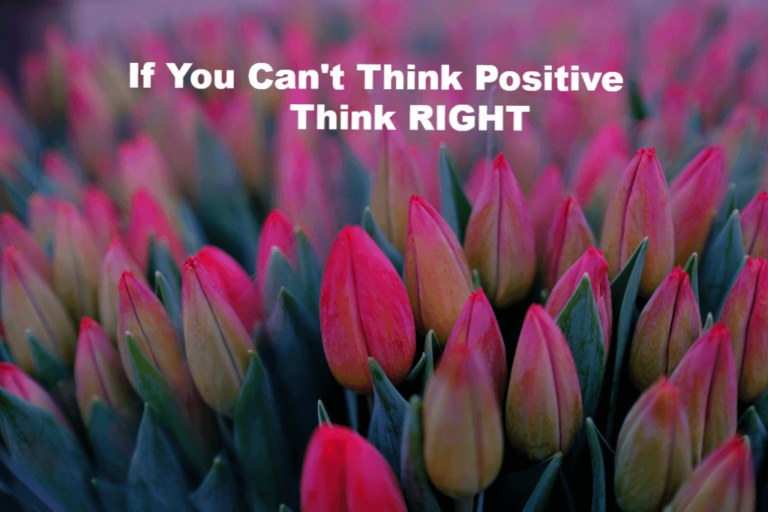
Simple Habits For Thoughts Hygiene
Experts say that a human mind creates anything between 36,000 to 80,000 thoughts in a day. Which means about 25 to 55 thoughts per minute.

“Hey Jerry! May I borrow your cell phone just for a bit?”
“Why Tom? What’s the matter with your’s?”
“Man! It’s running low on battery, merely 2% charging left and I’ve got a long way to go before I reach home. The call I need to make is an important one.” Shrugs his shoulders, “Man! should have thought about this earlier whilst I had several apps running on the home screen simultaneously & internet switched on for hours.”
Do Jerry’s words ring a bell? Is this Jerry or me? What does the display of my mind’s screen look like? Is it overloaded or plain? Have I had a look lately? Never too late to begin; is it?
The concept of waste thoughts was unknown to me before I stepped into The Godly University. Here, my Supreme Teacher through Divine teachings teaches me to distinguish between “value” and “waste”.
God, grant me the serenity to accept the things I cannot change,
the courage to change the things I can,
and the wisdom to know the difference.
Attributed to Reinhold Niebuhr, Lutheran theologian (1892–1971)
After class at the Godly University, I sit with a page divide it into two: In Column ‘A’ I give the heading “value” & in Column ‘B’ call it “waste”
Because He sees me as perfect, because He loves me more than I can ever love myself, because He handpicked me amongst the lot of millions, because He considers me to be “the apple of His eye” I love to introspect, sit with Him, work through assignments. He inspires me to mould myself into a better version of myself with each passing day.
I carry my Homework book around and begin. As I step out the door to leave for work, neighbours are discussing the sweeper who hasn’t done a great job of cleaning the staircase. My Godly Teacher has filled me with enough love and power to be able to discern; ‘Stop-Observe-Stir’ says the mind. These talks go into Column ‘B’ Why? Because there is no value I add to the situation by getting involved in the discussion.
I can add value by creating goodwill, power, love and pure thoughts for the sweeper and neighbours by creating thoughts like, ‘perhaps there is a situation at home that affected the sweeper’s mind causing disturbances that affected the way she worked today’; ‘perhaps the neighbour’s intention is that the place should be neat and tidy which certainly is a good intention for all but perhaps they are not able to convey what they feel.’
What do I choose here at this point of time?
Option 1 – step into the discussion
Option 2 – step out, above and beyond to an elevated plane of thoughts where the mind creates elevated thoughts opposite to the direction of the current tide of thoughts.
This is merely one illustration. A colleague talking about another in his absence, a friend discussing her in-laws, a security discussing the Secretary of the building and the lack of facilities he feels he gets – several innumerable thoughts pop up on the mind screen and demand my attention. If all of them are allowed space and time, then what is the difference between “value” and “waste”?
‘Hey, all you thoughts! hold on a bit. You’ll need to stand in a queue and I’ll come to you one at a time.’ For the guys at the far end of the queue, if waiting isn’t your cup of tea, if patience isn’t something you want to imbibe, feel free to leave or find another screen. It’s going to be “one thought at one moment” in my space; “like it or leave it!”
Thoughts are a treasure and so is time. I let no one and none choose what thoughts to create for me or how to spend my time. Time and I are best pals. Time facilitates my spiritual growth. Time favours my study. Time supports me in all Godly Study. My thoughts are my precious jewels. My Supreme teacher teaches me “thought management”: what to think, when, where and how to think. Just as worldly etiquettes are a prerequisite for worldly scenarios, practising thought etiquettes mould and remould me into “pure gold”
Either I do something in a particular situation or I choose silence and solitude. I need not put my finger in every pie. I choose to be “part of the solution” not “part of thought pollution.” Certainly, there will be situations and times wherein I may be required and at such times, I need not shy away. The clearer I keep my connection with The Supreme Soul, the finer will be the thoughts and the ability to discern the waste from the valuable. Often the line between the two blurs but that’s the game isn’t it? And that’s exactly what Tom and Jerry are up to, aren’t they?
Now that the both of them are part of the Godly University I doubt they’ll be hanging around with low battery phones. Who’d want to miss this opportunity of “the gift of a lift” a golden chance to check-change, view-review and feel, experience the enormous shift within the self; would you?
The main concept of this blog post is the idea of distinguishing between “value” and “waste” thoughts in our daily lives. The author explores how recognizing and managing our thoughts can lead to personal growth and a more positive mindset.
The quote attributed to Reinhold Niebuhr, a theologian, emphasizes the importance of accepting what cannot be changed, having the courage to change what can be changed, and having the wisdom to distinguish between the two. It sets the tone for the blog’s discussion on thought management.
The author categorizes thoughts by evaluating whether they add value to a situation or are wasteful. Thoughts that contribute positively to a situation or promote goodwill, love, and understanding are considered valuable, while those that do not add any value or contribute to negativity are considered wasteful.
The author’s approach is to be mindful of their thoughts and choose carefully. They advocate for a conscious decision to engage in thoughts that contribute positively or elevate a situation. Additionally, they emphasize the importance of time management and thought etiquettes.
The author suggests that Tom and Jerry, who are also part of The Godly University, would not let their phones run low on battery, metaphorically indicating that they would not engage in wasteful thoughts. The reference to Tom and Jerry highlights the transformative power of thought management.
To apply these concepts to your daily life, start by becoming more aware of your thoughts and their impact. Practice thought management by consciously choosing to engage in valuable thoughts that contribute positively to your life and the lives of others. Embrace silence and solitude when necessary, and focus on being part of the solution rather than contributing to negativity.
For more information about The Godly University and nearby meditation center, Click here

Experts say that a human mind creates anything between 36,000 to 80,000 thoughts in a day. Which means about 25 to 55 thoughts per minute.

Have your friends often told you to not blow things out of proportion? With so many situations and events in life, do you see them

Knowing the Conscious and the Unconscious Consciousness is believed by all as the substratum of all human actions. Man’s thoughts, understanding, judgement, perceptions, learning, feelings,

Ethics and Sustainability – Once, a tailor was at work. He took a piece of cloth and with a pair of shining, costly, scissors; he

By dedicating time to nurture our inner selves, we can transform our external reality. Embrace the practice of viewing life through a lens of gratitude and positivity, and watch as your world blossoms into a garden of tranquility and joy.

Facilitative and authoritative leadership styles showcase the delicate balance between guiding a team towards realizing its potential and empowering individuals to find innovative solutions. A courageous leader, driven by an unwavering commitment to truth, stands resilient in the face of crises, paving the way for genuine, lasting impact.

We need to be the conqueror of attachment. Only those who constantly have the one Supreme Being, in their vision can conquer attachment. If you

Do you know your real self ? A dissertation on the Self & Consciousness from the view-point of Science, Spirituality, Philosophy, Psychology, Yoga, Religions &

Whenever there is a small or a big problem there are two approaches. One is to take that particular problem as a threat and the

This article beautifully explains the significance of love in relationships. It compares how anger increases distance while love lessens it, highlighting the transformative power of love in human connections. It emphasises the idea that giving love leads to receiving it, creating a positive cycle. The piece concludes by stating that love, as a divine force, is essential for inner peace and spiritual growth.
Start your day with a breeze of positivity and stay motivated with these daily affirmations
After Clicking on Join, You will be redirected to Whatsapp Community to receive daily message. Your identitiy will be secured and no group member will know about another group member who have joined.